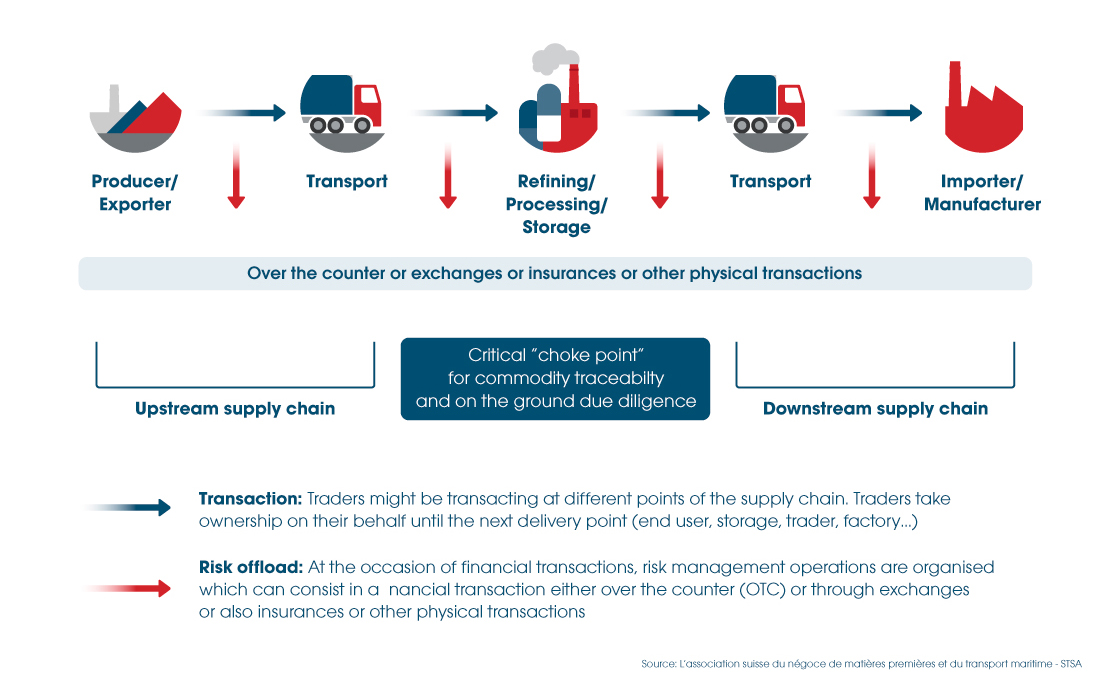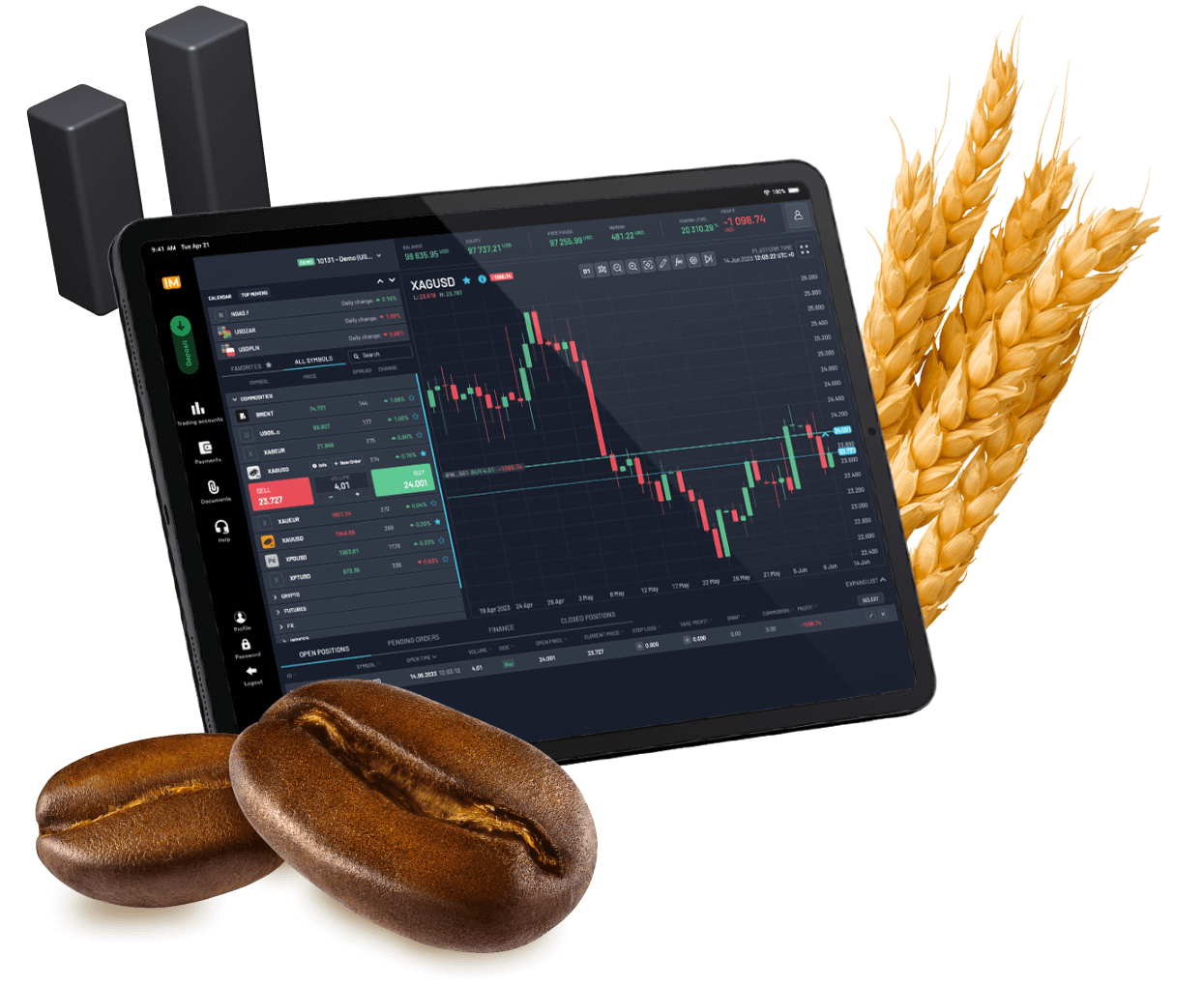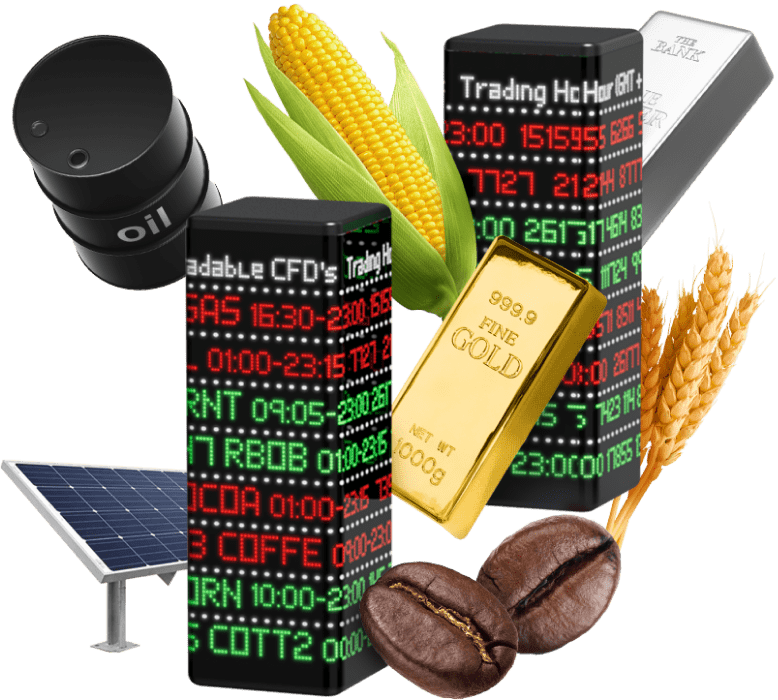Commodity Trading Certification: Your Gateway To A Lucrative Career
Commodity trading certification has become a buzzword in the world of finance and business. It’s like a golden ticket that opens doors to exciting opportunities in global markets. If you’re thinking about diving into the world of commodities, getting certified is not just an option—it’s a necessity. Imagine being part of a network that moves everything from coffee beans to crude oil across continents. That’s where a commodity trading certification comes into play.
Think about it. The global commodities market is massive, and it’s only getting bigger. From agricultural products to metals and energy, the demand for skilled traders is skyrocketing. Having the right certification can set you apart from the crowd and make you a valuable asset to any trading firm. It’s like leveling up in a game, but this game comes with real-world rewards.
But hold up. Getting certified isn’t just about taking a test and calling it a day. It’s about gaining knowledge, skills, and credibility that can propel your career forward. In this article, we’ll break down everything you need to know about commodity trading certification, from the basics to the nitty-gritty details. So, buckle up and let’s dive in!
- Damon Darpling Net Worth A Deep Dive Into The Wealth Of This Hollywood Icon
- Truett Hanes Height And Weight The Full Scoop Yoursquove Been Waiting For
What is Commodity Trading Certification?
Let’s start with the basics. Commodity trading certification is like a badge of honor in the finance world. It proves that you’ve got what it takes to navigate the complex world of commodities. But what exactly does it mean? Simply put, it’s a program designed to equip you with the knowledge and skills needed to trade commodities effectively.
These certifications cover a wide range of topics, from market fundamentals to risk management and regulatory compliance. They’re offered by various institutions, both online and offline, and can vary in length and depth. Some are short courses that focus on specific areas, while others are comprehensive programs that take months to complete.
Why Do You Need a Certification?
Now, you might be wondering, “Do I really need a certification?” The short answer is yes. Here’s why:
- Anjali Arora Viral Mms The Inside Story You Need To Know
- Pierre Poilievre Height And Weight A Closer Look At The Canadian Politician
- It validates your expertise and makes you more attractive to employers.
- It provides you with a solid foundation in commodity trading principles.
- It keeps you updated with the latest trends and regulations in the industry.
- It opens doors to higher-paying jobs and career advancement opportunities.
Think of it this way. In a competitive job market, having a certification is like having a superpower. It sets you apart from the rest and shows that you’re serious about your career.
Types of Commodity Trading Certifications
Not all certifications are created equal. There are several types of commodity trading certifications out there, each catering to different needs and levels of expertise. Let’s take a look at some of the most popular ones.
1. CFTC (Commodity Futures Trading Commission) Certification
The CFTC certification is like the gold standard in the industry. It’s offered by the U.S. government and focuses on futures trading. If you’re planning to work in the U.S. or with U.S.-based companies, this certification is a must-have.
2. Chartered Commodity Trader (CCT)
The CCT certification is another big player in the game. It’s designed for traders who want to specialize in commodities and covers everything from market analysis to trading strategies. It’s like a deep dive into the world of commodities.
3. Certified Commodity Risk Manager (CCRM)
For those who want to focus on risk management, the CCRM certification is the way to go. It’s perfect for traders who want to ensure that their companies are protected from market volatility.
Choosing the Right Certification
With so many options available, choosing the right certification can be overwhelming. Here are a few tips to help you make the right decision:
- Consider your career goals. What do you want to achieve in the long run?
- Look at the curriculum. Does it cover the topics you’re interested in?
- Check the reputation of the certifying body. Is it well-respected in the industry?
- Think about the cost. Is the program affordable and worth the investment?
Remember, the right certification can make all the difference in your career. So, take your time and choose wisely.
Benefits of Commodity Trading Certification
So, what’s in it for you? Here are some of the benefits of getting a commodity trading certification:
- Increased earning potential. Certified traders often command higher salaries.
- Improved job prospects. Employers love candidates with certifications.
- Enhanced knowledge and skills. You’ll learn things you didn’t even know you needed to know.
- Networking opportunities. You’ll meet other professionals in the field who can help you grow your career.
It’s like investing in yourself. The more you know, the more valuable you become.
How to Prepare for a Commodity Trading Certification
Getting certified isn’t just about signing up for a course. It’s about preparing yourself mentally and academically. Here’s how you can get ready:
1. Brush Up on Your Basics
Make sure you have a solid understanding of financial markets and trading principles. If you’re rusty, consider taking a refresher course.
2. Study the Curriculum
Get familiar with the topics that will be covered in the certification program. This will help you focus your study efforts on the right areas.
3. Practice, Practice, Practice
Nothing beats hands-on experience. Try simulating trades and analyzing real-world scenarios. It’s like practicing for the big game.
Common Challenges in Commodity Trading Certification
Let’s be real. Getting certified isn’t always a walk in the park. Here are some common challenges you might face:
- Time constraints. Balancing work, life, and studying can be tough.
- Complex topics. Some of the concepts can be difficult to grasp at first.
- Cost. Certifications can be expensive, especially if you’re taking multiple courses.
But don’t let these challenges discourage you. With dedication and perseverance, you can overcome them and achieve your goals.
Top Commodity Trading Certification Programs
Not all certification programs are created equal. Here are some of the top programs you should consider:
1. CFTC Certification Program
Offered by the U.S. government, this program is perfect for those who want to specialize in futures trading. It’s rigorous and comprehensive, covering everything from market regulations to trading strategies.
2. Chartered Institute for Securities & Investment (CISI)
The CISI offers a range of certifications, including one focused on commodities. It’s globally recognized and highly respected in the industry.
3. Global Association of Risk Professionals (GARP)
GARP’s certification programs are designed for risk management professionals. If you’re interested in managing commodity risks, this is the program for you.
Commodity Trading Certification and Career Opportunities
Once you’re certified, the world is your oyster. Here are some career opportunities you can explore:
- Commodity Trader. You’ll be responsible for buying and selling commodities on behalf of your company.
- Risk Manager. You’ll ensure that your company is protected from market volatility.
- Market Analyst. You’ll analyze market trends and provide insights to traders and decision-makers.
The possibilities are endless. With the right certification, you can carve out a successful career in the commodities market.
Conclusion
Commodity trading certification is more than just a piece of paper. It’s a stepping stone to a successful career in one of the most dynamic industries in the world. By gaining the right knowledge and skills, you can position yourself as a valuable asset to any trading firm.
So, what are you waiting for? Take the first step towards your dream career and get certified today. And don’t forget to share your thoughts and experiences in the comments below. We’d love to hear from you!
Table of Contents
- What is Commodity Trading Certification?
- Why Do You Need a Certification?
- Types of Commodity Trading Certifications
- Choosing the Right Certification
- Benefits of Commodity Trading Certification
- How to Prepare for a Commodity Trading Certification
- Common Challenges in Commodity Trading Certification
- Top Commodity Trading Certification Programs
- Commodity Trading Certification and Career Opportunities
- Conclusion
- Jameliz Nude A Comprehensive And Respectful Exploration
- Shanin Blake Leaked The Untold Story Behind The Viral Sensation

4. Explaining the Commodity Supply Chain Commodities Trading Guidelines

Commodity Trading Oil Precious metals & Soft Commodities

Commodity Trading Oil Precious metals & Soft Commodities